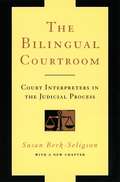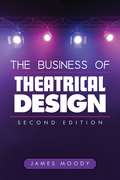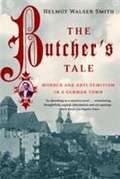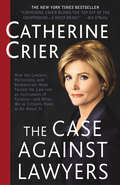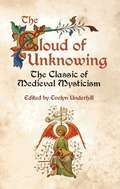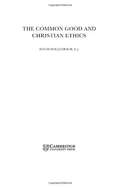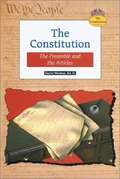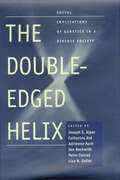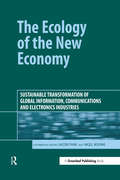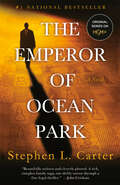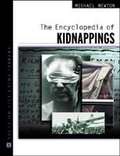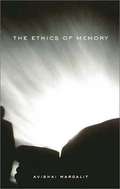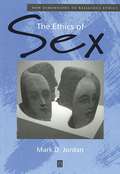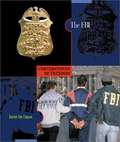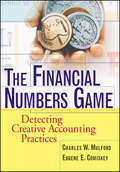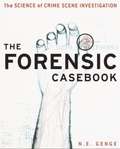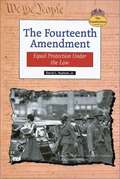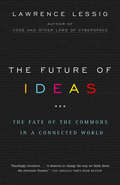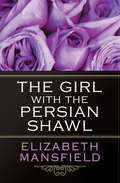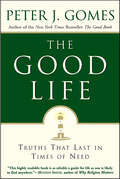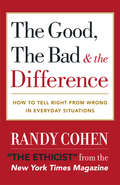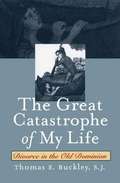- Table View
- List View
The Best Democracy Money Can Buy
by Greg PalastA disturbing book about manipulation by the rich of the have-nots.
The Bilingual Courtroom: Court Interpreters in the Judicial Process
by Susan Berk-SeligsonDrawing on more than one hundred hours of taped recordings of Spanish/English court proceedings in federal, state, and municipal courts—along with extensive psycholinguistic research using translated testimony and mock jurors—Susan Berk-Seligson's seminal book presents a systematic study of court interpreters, and raises some alarming, vitally important concerns: contrary to the assumption that interpreters do not affect the contents of court proceedings, they could potentially make the difference between a defendant being found guilty or innocent of a crime.
The Business of Theatrical Design, Second Edition
by James MoodyWritten by a leading design consultant and carefully updated with the latest information on the industry, this is the essential guide to earning a living, marketing skills, furthering a design career, and operating a business. With more than thirty years of backstage and behind-the-scenes experience in theater, film, television, concerts, and special events, James Moody shares his success secrets for the benefit of design students and working designers. Topics include: Finding and landing dream assignmentsNegotiating feesSetting up ideal working spacesBuilding the perfect staffOvercoming fears of accounting and record-keepingChoosing the right insuranceJoining the right unions and professional organizationsAnd more In addition to revealing how to get the great design jobs in traditional entertainment venues, the author shows designers how to think outside the box and seize creative, lucrative opportunities—such as those in theme parks, in concert halls, and with architectural firms. Providing the keys for passionate, talented designers to become successful businesspeople, The Business of Theatrical Design is a must-read for novices and established professionals alike.
The Butcher's Tale: Murder and Anti-Semitism in a German Town
by Helmut Walser SmithThe book provides an excellent look at a true crime incident that led to unproven accusations followed by anti-Semitic rioting and acts of violence against the Jewish population.
The Case Against Lawyers: How the Lawyers, Politicians, and Bureaucrats Have Turned the Law into an Instrument of Tyranny--and What We as Citizens Have to Do About It
by Catherine CrierTHE EMMY AWARD-WINNING HOST OF COURT TV’S "CATHERINE CRIER LIVE" DESCRIBES AN AMERICAN LEGAL SYSTEM DANGEROUSLY OUT OF CONTROL – AND FINDS THE LAWYERS GUILTY AS CHARGED.As a child, Catherine Crier was enchanted by film portrayals of crusading lawyers like Clarence Darrow and Atticus Finch. As a district attorney, private lawyer, and judge herself, she saw firsthand how the U.S. justice system worked – and didn’t. One of the most respected legal journalists and commentators today, she now confronts a profoundly unfair legal system that produces results and profits for the few – and paralysis, frustration, and injustice for the many. Alexis de Tocqueville’s dire prediction in Democracy in America has come true: We Americans have ceded our responsibility as citizens to resolve the problems of society to "legal authorities" – and with it our democratic freedoms.The Case Against Lawyers is both an angry indictment and an eloquent plea for a return to common sense. It decries a system of laws so complex even the enforcers – such as the IRS – cannot understand them. It unmasks a litigation-crazed society where billion-dollar judgments mostly line the pockets of personal injury lawyers. It deplores the stupidity of a system of liability that leads to such results as a label on a stroller that warns, “Remove child before folding.” It indicts a criminal justice system that puts minor drug offenders away for life yet allows celebrity murderers to walk free. And it excoriates the sheer corruption of the iron triangle of lawyers, bureaucrats, and politicians who profit mightily from all this inefficiency, injustice, and abuse.The Case Against Lawyers will make readers hopping mad. And it will make them realize that the only response can be to demand change. Now.
The Cloud of Unknowing: The Classic of Medieval Mysticism
by Evelyn UnderhillAn exploration of the nature of reality, mysticism begins with the individual struggle toward a clear vision and culminates in a transformed consciousness. This marvelous guide to the contemplative life originated with the reflection of an unknown fourteenth-century priest who believed that a "cloud of unknowing" separates people from God. This cloud, he maintained, cannot be penetrated by intellect —only by love.The Cloud of Unknowing offers an approach to contemplative life that finds holiness at a level deeper than physical experience and beyond language or image. The author advises placing all thought and mental imagery behind a metaphorical "cloud of forgetting" while seeking to love the divine. Hidden from the infinite consciousness by a "cloud of unknowing," divine love can be reached through monologistic prayer — a single-word prayer, like a mantra, that assists in abandoning all extraneous thought. Seekers can thus attain an inner silence, where they may "be still and know the sacred."The author's spiritual gifts, combined with his humorous and straightforward approach, offer a view of divinity that never loses the common touch. Written in everyday language and edited by a popular authority on mysticism, this venerable work can be understood and appreciated by any reader.
The Common Good And Christian Ethics (New Studies In Christian Ethics Ser. #Series Number 22)
by Stanley M. Hauerwas Robin Gill Stephen R. L. Clark Robin W. Lovin David HollenbachThis study rethinks the ancient tradition of the common good to addressing contemporary urban and global social divisions. David Hollenbach draws on social analysis, moral philosophy, and theological ethics to chart new directions in urban life and global society. He argues that the division between the middle class and the poor in major cities and the challenges of globalization require a new commitment to the common good. Accordingly, believers and non-believers must move towards new forms of solidarity.
The Constitution
by Daniel WeidnerExplores the preamble and individual articles of the United States Constitution, as well as how this important document was written, how it has developed through the years, and how it is enforced
The Double Edged Helix: Social Implications of Genetics in a Diverse Society
by Adrienne Asch Jon Beckwith Peter Conrad Lisa N. Geller Joseph Alper Catherine ArdThe authors address the medical and ethical implications of the new technologies, outlining potential positive and negative effects of genetic research on minorities, people with disabilities, and those of diverse sexual orientations. Presenting a wide array of perspectives, this book emphasizes the need to ensure that research into genetics does not result in discrimination against people on the basis of their DNA.
The Double-Edged Helix: Social Implications of Genetics in a Diverse Society
by Joseph S. Alper, Catherine Ard, Adrienne Asch, Jon Beckwith, Peter Conrad, and Lisa N. GellerThis bioethics anthology exploring the questions and controversies surrounding the innovations of 21st century genetics.When the Human Genome Project completed its work in the early 2000s, it was hailed as a watershed moment in the history of medicine. But not everyone felt the same optimism about where the breakthrough might lead. The Double-Edged Helix explores the impact of recent genetic discoveries on society as a whole as well as individual populations and communities. This volume outlines potential positive and negative effects of genetic research on minorities, individuals with disabilities, and those of diverse sexual orientations. Presenting a wide array of perspectives, contributors address the medical and ethical implications of newly available technologies, from prenatal genetic screenings to the so-called “gay gene” debates. They emphasize the need to ensure that genetics research does not lead to discrimination against people on the basis of their DNA.A Choice Magazine Outstanding Academic Title
The Ecology of the New Economy: Sustainable Transformation of Global Information, Communications and Electronics Industries
by Jacob Park Nigel RoomeA "revolution" is taking place in the development of global information and communications technologies. In slightly more than a decade, the World Wide Web has gone from the idea of an obscure English scientist to a consumer-oriented technology system with an expected one billion users by 2005. The technologies that enable this to happen are advancing rapidly, which is leading to both an unprecedented number of start-up companies and a host of innovative new alliances between companies. The growth has been so rapid and unexpected that little research and analysis has yet been done on what impact this transformation has had or will have on the ability of companies to meet the global sustainability challenge. As environmental strategy has traditionally been portrayed in terms of risk cutting and resource efficiency, there is a danger that critical business issues such as information technology, R&D and e-commerce development are examined in isolation from the wider sustainable business perspective. An important objective of the book is to explore, document and raise awareness of sustainability concerns arising from the emerging global information economy. The information economy is defined in the broadest sense possible, including software, hardware, telecommunication – traditional and wireless – and advanced communication technologies. Some of the key issues and questions that are examined include:Case studies on how and to what degree sustainability concerns are being integrated into the business model of electronic, telecommunication and dot.com firms. The relationship between the diffusion of information and communication technologies and the energy and resource intensity of companies. The role of information and communication technologies in the shaping of policies for sustainability, its impacts on sustainable or unsustainable lifestyles and its implications for the interaction between companies and other actors. Corporations and the global digital divide. The Ecology of the New Economy will be of interest to academics, governments, businesses, and non-governmental groups who are trying to understand the linkages and relationship between the two of our greatest global challenges: the information revolution and environmental sustainability.
The Emperor of Ocean Park (Elm Harbor #1)
by Stephen L. Carter<P>In his triumphant fictional debut, Stephen Carter combines a large-scale, riveting novel of suspense with the saga of a unique family. <P>The Emperor of Ocean Park is set in two privileged worlds: the upper crust African American society of the Eastern seabord--families who summer at Martha's Vineyard--and the inner circle of an Ivy League law school. <P>Talcott Garland is a successful law professor, devoted father, and husband of a beautiful and ambitious woman, whose future desires may threaten the family he holds so dear. <P>When Talcott's father, Judge Oliver Garland, a disgraced former Supreme Court nominee, is found dead under suspicious circumstances, Talcott wonders if he may have been murdered. <P>Guided by the elements of a mysterious puzzle that his father left, Talcott must risk his marriage, his career and even his life in his quest for justice. <P>Superbly written and filled with memorable characters, The Emperor of Ocean Park is both a stunning literary achievement and a grand literary entertainment.
The Encyclopedia of Kidnappings
by Michael NewtonAn A-to-Z encyclopedia of kidnappings that have taken place throughout history, from Viking raids and Aztec sacrifices to modern-day political kidnappings. Alphabetically arranged by subject, organization, and victims' and kidnappers' names, the volume contains nearly 1,000 entries.
The Ethics of Memory
by Avishai MargalitMuch of the intense current interest in collective memory concerns the politics of memory. In a book that asks, "Is there an ethics of memory?" Avishai Margalit addresses a separate, perhaps more pressing, set of concerns. <p><p> The idea he pursues is that the past, connecting people to each other, makes possible the kinds of "thick" relations we can call truly ethical. Thick relations, he argues, are those that we have with family and friends, lovers and neighbors, our tribe and our nation--and they are all dependent on shared memories. But we also have "thin" relations with total strangers, people with whom we have nothing in common except our common humanity. A central idea of the ethics of memory is that when radical evil attacks our shared humanity, we ought as human beings to remember the victims.<p> Margalit's work offers a philosophy for our time, when, in the wake of overwhelming atrocities, memory can seem more crippling than liberating, a force more for revenge than for reconciliation. Morally powerful, deeply learned, and elegantly written, The Ethics of Memory draws on the resources of millennia of Western philosophy and religion to provide us with healing ideas that will engage all of us who care about the nature of our relations to others.
The Ethics of Sex (New Dimensions to Religious Ethics)
by Mark D. JordanMark Jordan has written a provocative and stimulating introduction to the issues surrounding sexual ethics and sexuality and theology, filling a much-needed void in this field. Jordan summarizes key topics and themes in the teaching and discussion of religious ethics as well as pushing forward the debate in interesting and original directions.
The FBI (Cornerstones of Freedom, 2nd Series)
by Sarah De CapuaIntroduces the history and function of the Federal Bureau of Investigation, and presents facts about such topics as women and minorities in the Bureau, the FBI Academy, and how to become an agent. Includes bibliographical references and index.
The Financial Numbers Game
by Charles W. Mulford Comiskey Eugene E.Praise for The Financial Numbers Game "So much for the notion 'those who can, do-those who can't, teach. ' Mulford and Comiskey function successfully both as college professors and real-world financial mercenaries. These guys know their balance sheets. The Financial Numbers Game should serve as a survival manual for both serious individual investors and industry pros who study and act upon the interpretation of financial statements. This unique blend of battle-earned scholarship and quality writing is a must-read/must-have reference for serious financial statement analysis. " -Bob Acker, Editor/Publisher, The Acker Letter "Wall Street's unforgiving attention to quarterly earnings presents ever-increasing pressure on CFOs to manage earnings and expectations. The Financial Numbers Game provides a clear explanation of the ways in which management can stretch, bend, and break accounting rules to reach the desired bottom line. This arms the serious investor or financial analyst with the healthy skepticism required to drive beyond reported results to a clear understanding of a firm's true performance. " -Mark Hurley, Managing Director, Training and Development Global Corporate and Investment Banking, Bank of America "After reading The Financial Numbers Game, I feel as though I've taken a master's course in financial statement analysis. Mulford and Comiskey's latest book should be required reading for anyone who is serious about fundamentally analyzing stocks. " -Harry Domash, Investing Columnist, San Francisco Chronicle and Publisher, Winning Investing The Financial Numbers Game identifies the steps businesses may take to misstate financial performance and helps its readers to identify those situations where reported results may not be what they seem.
The Forensic Casebook: The Science of Crime Scene Investigation
by N. E. GengeTHE ULTIMATE READERS' GUIDE TO THE ART OF FORENSICS! An intrepid investigator crawls through miles of air conditioning ducts to capture the implicating fibers of a suspect's wool jacket . . . A forensic entomologist discovers insects in the grill of a car and nails down a drug dealer's precise geographical path . . . A gluttonous criminal's fingerprints are lifted from a chocolate truffle. . . . Filled with these and many other intriguing true stories, and packed with black and white illustrations and photographs, The Forensic Casebook draws on interviews with police personnel and forensic scientists--including animal examiners, botanists, zoologists, firearms specialists, and autoposists--to uncover the vast and detailed underworkings of criminal investigation. Encyclopedic in scope, this riveting, authoritative book leaves no aspect of forensic science untouched, covering such fascinating topics as:* Securing a crime scene* Identifying blood splatter patterns* Collecting fingerprints--and feet, lip, and ear prints* Interpreting the stages of a body's decay* Examining hair and fiber evidence* Trace evidence from firearms and explosives* "Lifting" DNA prints* Computer crime and forensic photography* Career paths in criminal scienceLucidly written and spiked with real crime stories, The Forensic Casebook exposes the nitty gritty that other books only touch upon. Here is a reference book as addictive as a page-turning novel of suspense.From the Trade Paperback edition.
The Forms and Functions of Tort Law (second edition)
by Kenneth S. AbrahamThis book is designed to provide a concise analysis of the conceptual foundations of tort liability.
The Fourteenth Amendment
by David L. HudsonIn The Fourteenth Amendment: Equal Protection Under the Law, author David L. Hudson, Jr., explores the significance of the Fourteenth Amendment through the country's history and legal cases. He discusses why there was a need for this amendment, how it was created, and fully explains the major sections and clauses. This amendment forever changed Constitutional law and will continue to have an impact on legal cases in the future.
The Future of Ideas: The Fate of The Commons in a Connected World
by Lawrence LessigThe Internet revolution has come. Some say it has gone. InThe Future of Ideas, Lawrence Lessig explains how the revolution has produced a counterrevolution of potentially devastating power and effect. Creativity once flourished because the Net protected a commons on which widest range of innovators could experiment. But now, manipulating the law for their own purposes, corporations have established themselves as virtual gatekeepers of the Net while Congress, in the pockets of media magnates, has rewritten copyright and patent laws to stifle creativity and progress. Lessig weaves the history of technology and its relevant laws to make a lucid and accessible case to protect the sanctity of intellectual freedom. He shows how the door to a future of ideas is being shut just as technology is creating extraordinary possibilities that have implications for all of us. Vital, eloquent, judicious and forthright,The Future of Ideasis a call to arms that we can ill afford to ignore.
The Girl with the Persian Shawl
by Elizabeth MansfieldAn Arrogant Spinster, a Dashing Rake, and an Unsigned PaintingThe Girl With Persian Shawl was a strangely bewitching masterpiece that had hung in the Rendell household for generations. Kate Rendell graciously let the dashing Lord Ainsworth view the work, and was outraged when he dared to insinuate that the painting came into the family by nefarious means. She was unfazed that Lord Ainsworth left her estate believing she was little more than an arrogant spinster. But everything changed when she discovered that her beloved but flighty younger cousin was to be betrothed to--a rake!
The Good Life: Truths That Last in Times of Need
by Peter J. GomesThe author of the New York Times bestseller The Good Book champions the recovery of the Western moral tradition.
The Good, the Bad & the Difference
by Randy CohenThe man behind the New York Times Magazine's immensely popular column "The Ethicist"-syndicated in newspapers across the United States and Canada as "Everyday Ethics"-casts an eye on today's manners and mores with a provocative, thematic collection of advice on how to be good in the real world.Every week in his column on ethics, Randy Cohen takes on conundrums presented in letters from perplexed people who want to do the right thing (or hope to get away with doing the wrong thing), and responds with a skillful blend of moral authority and humor. Cohen's wisdom and witticisms have now been collected in The Good, the Bad & the Difference, a collection of his columns as wise and funny as a combination of "Dear Abby," Plato, and Mel Brooks. The columns are supplemented with second thoughts on (and sometimes complete reversals of) his original replies, follow-up notes on how his advice affected the actions of various letter writers, reactions from readers both pro and con, and observations from such "guest ethicists" as David Eggers and the author's mom. Each chapter also features an "Ethics Pop Quiz," and readers will be invited to post their answers on the book's Web site. The best of them will appear in a future paperback edition of the book.The Good, the Bad & the Difference is divided into seven sections: *Civic Life (what we do in public) *Family Life (what we do at home) *Social Life (what we do in other people's homes) *Commercial Life (what we do in situations where money is a factor) *Medical Life (the rights and obligations of patients and caregivers) *Work Life (ethics for the professional sphere) *School Life (moral questions from and about kids)Each section provides a window into how we live today, shedding light on the ways in which a more ethical approach to the decisions we make, and to our daily behavior, can make a big difference in how we feel about ourselves tomorrow.From the Hardcover edition.
The Great Catastrophe of My Life
by Thomas E. BuckleyFrom the end of the Revolution until 1851, the Virginia legislature granted most divorces in the state. It granted divorces rarely, however, turning down two-thirds of those who petitioned for them. Men and women who sought release from unhappy marriages faced a harsh legal system buttressed by the political, religious, and communal cultures of southern life. Through the lens of this hostile environment, Thomas Buckley explores with sympathy the lives and legal struggles of those who challenged it.Based on research in almost 500 divorce files, The Great Catastrophe of My Life involves a wide cross-section of Virginians. Their stories expose southern attitudes and practices involving a spectrum of issues from marriage and family life to gender relations, interracial sex, adultery, desertion, and domestic violence. Although the oppressive legal regime these husbands and wives battled has passed away, the emotions behind their efforts to dissolve the bonds of marriage still resonate strongly.

